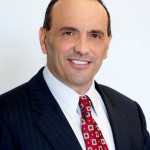Proceed with caution
By Ernesto Cullari
 I’m not an expert on suicide and chances are neither are you –that’s okay. But if you read the news, or if you’ve logged onto Facebook, Instagram or Twitter recently, nearly everyone has something to say about suicide and actor Robin Williams’s death.
I’m not an expert on suicide and chances are neither are you –that’s okay. But if you read the news, or if you’ve logged onto Facebook, Instagram or Twitter recently, nearly everyone has something to say about suicide and actor Robin Williams’s death.
Be careful what you say and what you write, because it is likely that the person sleeping next to you; the guy that delivers your mail or the person sitting near you on the train has thought about suicide at least once before.
Nearly 1 in 20 people have thought about suicide. Suicidal thoughts are more common than we realize. What we say to our friends, family and colleagues and what we write about suicide on social media will certainly have an impact on those around us. Many are more vulnerable to past and current suicidal thoughts, because Robin William’s death has made their feelings of suicide very raw.
Being able to talk to someone about suicidal thoughts is very important. There are people specially trained to help those in need of someone to listen. Share this number on your social media, it is operational 24 hours a day, from everywhere in the country: 1-800-273-TALK
There is a stigma surrounding mental health issues that should not exist. That stigma is an impediment to people who should be seeking help but are reluctant to do so for fear of being judged by others. What you say about Robin Williams, you’re really saying about them. I’ve thought about suicide on more than one occasion, depression runs in my family and it is something that I wont be ashamed of.
You shouldn’t be ashamed to talk about your feelings either. If you can’t talk to a loved one about your thoughts and feelings call the hotline above to speak to a person.
If someone breaks a leg we are quick to share our own personal story of how we once broke a bone or were injured ourselves. We should encourage one another to feel free to talk about suicide, depression, bipolar disorder or any aspect of our mental health.
Hollis Easter, a nationally recognized leader in suicide prevention programs says this about the importance of talking about suicide:
“For a lot of people, talking about their thoughts of suicide helps them to go away. Some people need the help of a trained professional, and some people need drug treatment or hospitalization. But a lot of people just need a caring person to listen. If someone starts telling you about their own thoughts of suicide in the aftermath of this, stay present and listen.
“Ask them why they’re feeling that way. Let them talk about the reasons for it. Start with the feelings. Don’t try to shove reasons for living down their throats—they won’t be able to breathe. They know there’s stuff worth living for; let them talk about the reasons they’re thinking about dying.”
In preparation for this article I spoke to an expert about how to handle this sensitive topic. I wanted to be respectful to Robin Williams and I wanted to be respectful to those among us who have had suicidal thoughts. The conversation focused on trying to be healthy overall, meaning maintaining a healthy body and a healthy mind.
But we are more than just body and mind; we each have a soul –a spirit that animates the body and mind. Any conversation about health that ignores the third part of our existence would be incomplete. For many the topic of God is the reason for their deepened suicidal thoughts, but for me and for many in my family God is the reason we can keep it together.
God created the world in a general sense and then he entered into each of our lives in a very personal sense, by taking on man’s physical and emotional nature in the form of his son Jesus. Although having God’s sinless nature, Jesus walked among us, he worked among us, he was rejected like us and he died like we shall. He willingly suffered in body, mind and soul unto death. But only Jesus was raised from the grave on the third day. If we place our faith in the only one who defeated death then maybe we can have hope in our day-to-day lives, despite the frequent failings of our fragile bodies and vulnerable minds.










